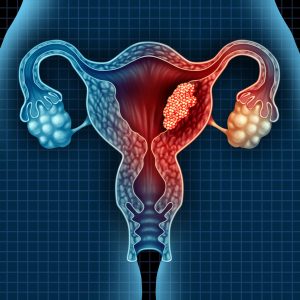Gynaecological Cancers

Understanding Gynaecological Cancers
Key Factors Contributing to Gynaecological Cancers:
- Genetic Mutations: BRCA1, BRCA2, and Lynch Syndrome.
- Infections: Human Papillomavirus (HPV) and sexually transmitted infections.
- Hormonal Factors: Prolonged estrogen exposure, hormone replacement therapy.
- Lifestyle Choices: Smoking, obesity, and poor diet.
- Family History: Increased risk if close relatives have a history of gynaecological cancers.
Types of Gynaecological Cancer
1. Cervical Cancer
- Abnormal Vaginal Bleeding: Bleeding between periods, after intercourse, or post-menopause.
- Pain During Intercourse: Discomfort or sharp pain during sexual activity.
- Unusual Vaginal Discharge: Watery, bloody, or foul-smelling discharge.
- Pelvic Pain: Persistent or cramping pelvic discomfort.
- Increased Urinary Frequency: Often accompanied by discomfort.
2. Ovarian Cancer
Description:A cancer that develops in the ovaries, the reproductive glands responsible for producing eggs and hormones. It is often referred to as a “silent killer” because it is frequently diagnosed at advanced stages due to vague or subtle symptoms.
Symptoms:
- Abdominal Bloating: Persistent bloating or swelling in the abdomen.
- Pelvic Pain: Ongoing or intermittent pain in the pelvic region
- Frequent Urination: Increased urgency or frequency of urination.
- Early Satiety: Feeling full quickly while eating.
- Unexplained Weight Loss: Significant weight changes without a clear cause.
Note: Symptoms are often mild or mistaken for digestive issues, leading to delayed diagnosis. Regular check-ups and awareness are key for early detection.
3. Uterine Cancer (Endometrial Cancer)
- Abnormal Vaginal Bleeding: Bleeding between periods, heavy menstrual bleeding, or postmenopausal bleeding.
- Pelvic Pain: Persistent or cramping pain in the lower abdomen.
- Pain During Intercourse: Discomfort or sharp pain during sexual activity.
- Unusual Vaginal Discharge: Watery or blood-tinged discharge.
- Unexplained Weight Loss: Sudden or significant weight loss without effort.
4. Vaginal Cancer
- Vaginal Bleeding: Unrelated to menstruation or occurring after menopause.
- Pelvic Pain: Persistent or worsening pain in the pelvic region.
- Lump or Mass in the Vagina: A noticeable or palpable growth.
- Unusual Vaginal Discharge: May be watery, bloody, or have a foul odor.
- Pain During Intercourse: Discomfort or pain during sexual activity.
5. Vulvar Cancer
- Persistent Itching: Continuous itching that does not resolve with treatment.
- Skin Changes on the Vulva: Discoloration, thickening, or wart-like growths.
- Lump or Sore on the Vulva: A persistent sore or mass that does not heal.
- Pain or Burning Sensation: Especially during urination or sexual intercourse.
- Unusual Bleeding or Discharge: Not related to menstruation.
6. Fallopian Tube Cancer
Description: Cancer that originates in the fallopian tubes, which are part of the female reproductive system and connect the ovaries to the uterus. It is a rare type of gynecological cancer but is increasingly recognized as a source of ovarian and peritoneal cancers.
Symptoms:
- Abnormal Vaginal Bleeding: Especially after menopause.
- Pelvic or Abdominal Pain: Persistent or recurring pain.
- Watery or Bloody Vaginal Discharge: Unusual and persistent.
- Abdominal Bloating or Swelling: May indicate advanced disease.
- Pelvic Mass: Detectable during a pelvic examination.
Note: Symptoms are often subtle and can mimic other gynecological conditions, leading to delayed diagnosis.
Targeted Therapy :
- Precision medicine targeting cancer cell proteins.
- Minimizes damage to healthy tissues.
Immunotherapy:
- Boosts the immune system to fight cancer cells.
- Effective in advanced or recurrent cases.
Early Detection and Prevention
Prevention and early diagnosis significantly improve outcomes. Regular screenings and healthy lifestyle choices are essential.
Screening Programs:
- Regular Pap smears and HPV tests
- Pelvic ultrasounds
- Routine gynecological exams
Preventive Measures:
- HPV vaccination
- Safe sexual practices
- Maintaining a healthy weight
- Regular physical activity
Awareness Campaigns:
- Educational workshops
- Community outreach programs
Emotional and Psychological Support
Cancer treatment extends beyond physical health. Emotional well-being plays a key role in recovery.
Support Services:
- One-on-one counseling
- Support groups for patients and families
- Stress management programs
Rehabilitation Programs:
- Post-surgery physical therapy
- Nutritional guidance
- Wellness workshops
